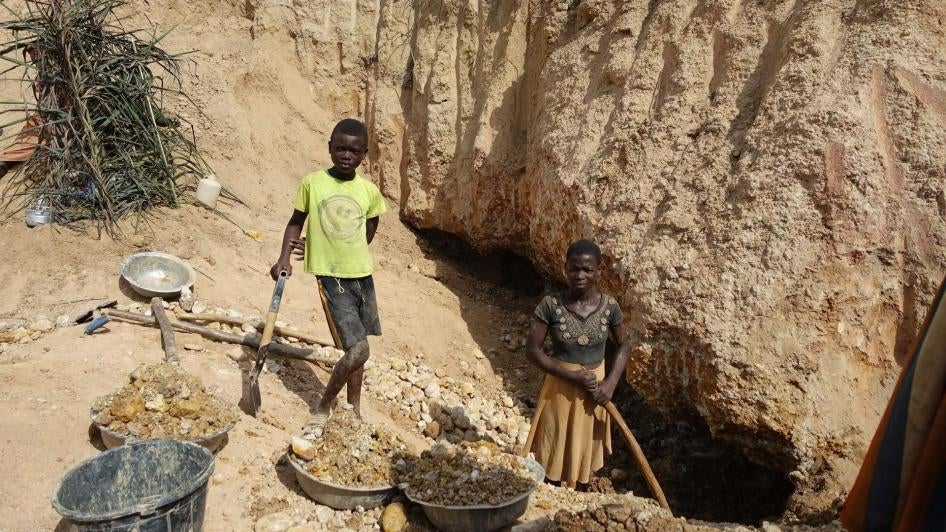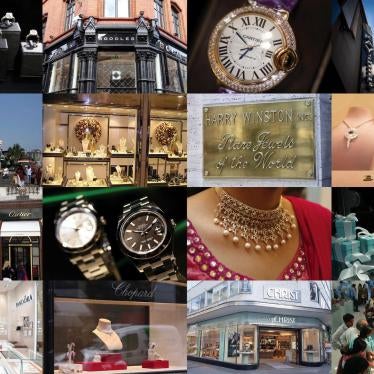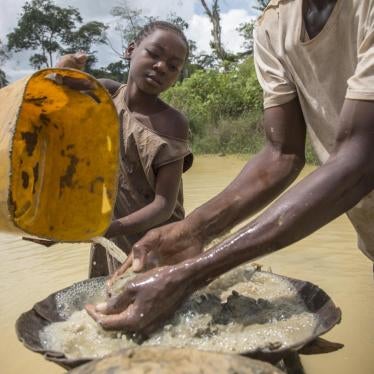This week is the start of Baselworld, one of the world’s largest jewelry and watch fairs. Visitors will learn a lot about new watch and jewelry design. But how much will they hear about the human rights conditions under which gold and other minerals for jewelry and watches have been mined?
Gold mining has led repeatedly to serious human rights violations. My colleagues and I have documented such abuses in gold mines in the Philippines, Papua New Guinea, Ghana, Mali, Nigeria, Tanzania, Uganda, and Eritrea.
We have also investigated the steps jewelry and watch companies are taking to avoid contributing to human rights abuses in their gold and diamond supply chains. We took a closer look at 13 leading jewelry and watch brands, with combined annual revenue of about $30 billion. Among them were Bulgari, Chopard, Harry Winston and Rolex.
We found that many companies don’t know where their gold and diamonds are coming from, and don’t do enough to assess human rights risks. In addition, jewelry and watch companies—including Bulgari, Chopard and Harry Winston-- often publish only some sparse, general information about human rights risks in their supply chains. Some companies, such as Rolex, don’t publish any information about their supply chains and company responsibility.
When we contacted the 13 companies more than a year ago, many pointed to their certification by the Responsible Jewellery Council (RJC). These companies considered their RJC certification proof of responsible sourcing. The RJC is an industry group with over 1,000 members that certifies members for carrying out its “Code of Practices” standard. But the standard is broad and imprecise, and does not require companies to fully trace the source of their minerals. There is little monitoring to ensure that companies are following the RJC’s code. It even falls short of the guidance on mineral supply chains by the Organization for Economic Co-operation and Development.
All jewelry and watch companies have a responsibility regarding their supply chains. Consumers increasingly demand responsible business conduct. And not only that—international norms about “due diligence” make clear that companies should assess human rights risks in their product chains and ask their suppliers to provide them with detailed information about all steps back to the mine.
In the interest of transparency, companies should report publicly about the human rights due diligence they are undertaking. Nongovernmental groups in Switzerland and elsewhere increasingly demand legal requirements for companies to carry out human rights due diligence. Indeed, voluntary standards are not enough to move the majority of companies to action.
Still, a few companies lead by example. Among the companies examined, Tiffany and Co. stands out for its ability to track its gold back to the mine, and for its thorough assessments of human rights impacts. Other jewelry companies-- including many small jewelers -- are increasingly making efforts to source their gold directly from small-scale mines where rights are respected. An example for this is the “Fairmined” standard, which oblige mines to respect clearly defined labor rights requirements and monitors conditions regularly for compliance.
Interestingly, Chopard is among those sourcing a small portion of its gold from „Fairmined” certified mines—a positive step. But it is disappointing that Chopard provides no information yet about the supply chain for the largest part of its gold.
It is time for all jewellery and watch companies at Baselworld should be transparent about where their gold originates and what they are doing to address human rights abuses in their supply chains.










